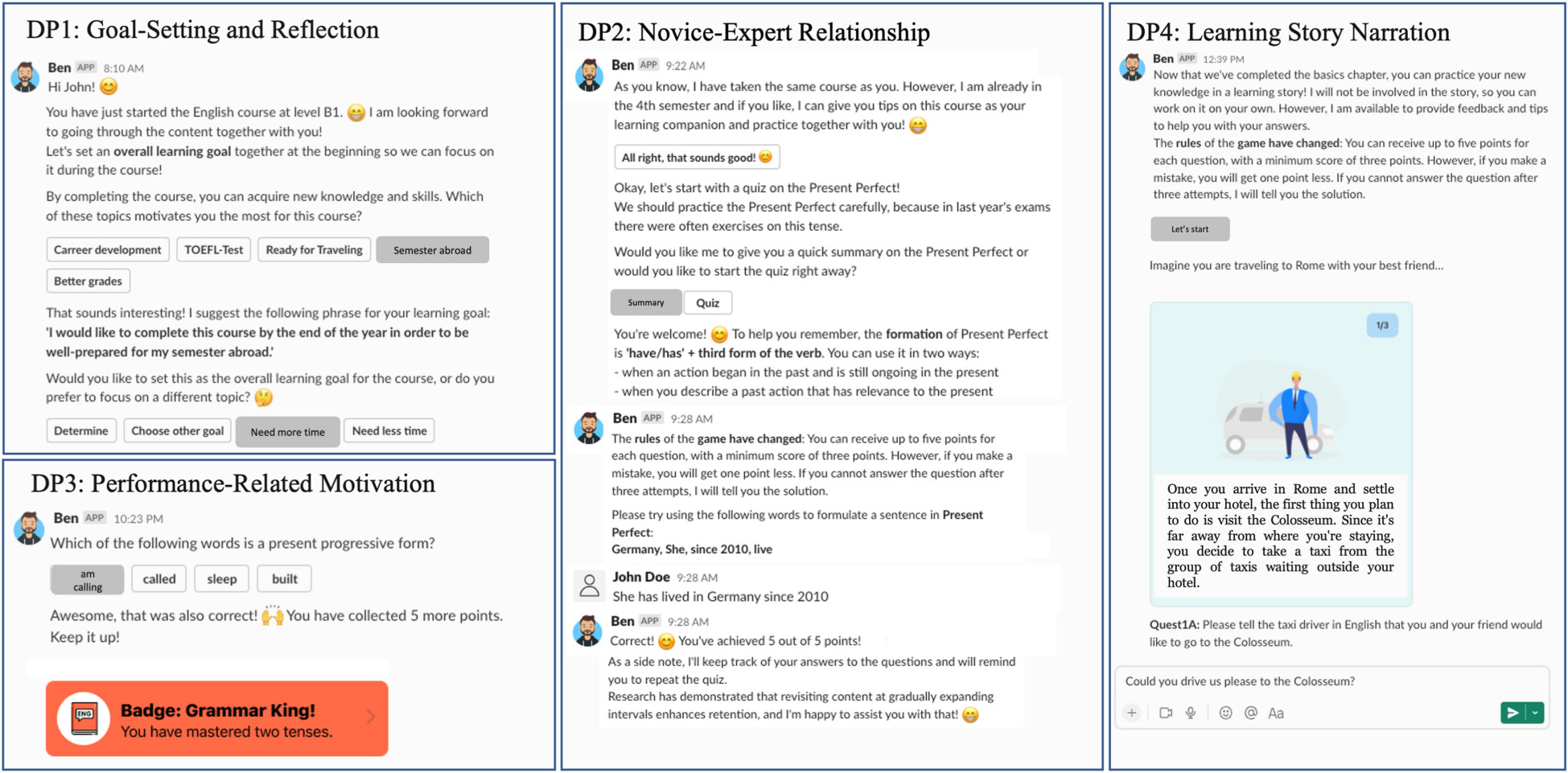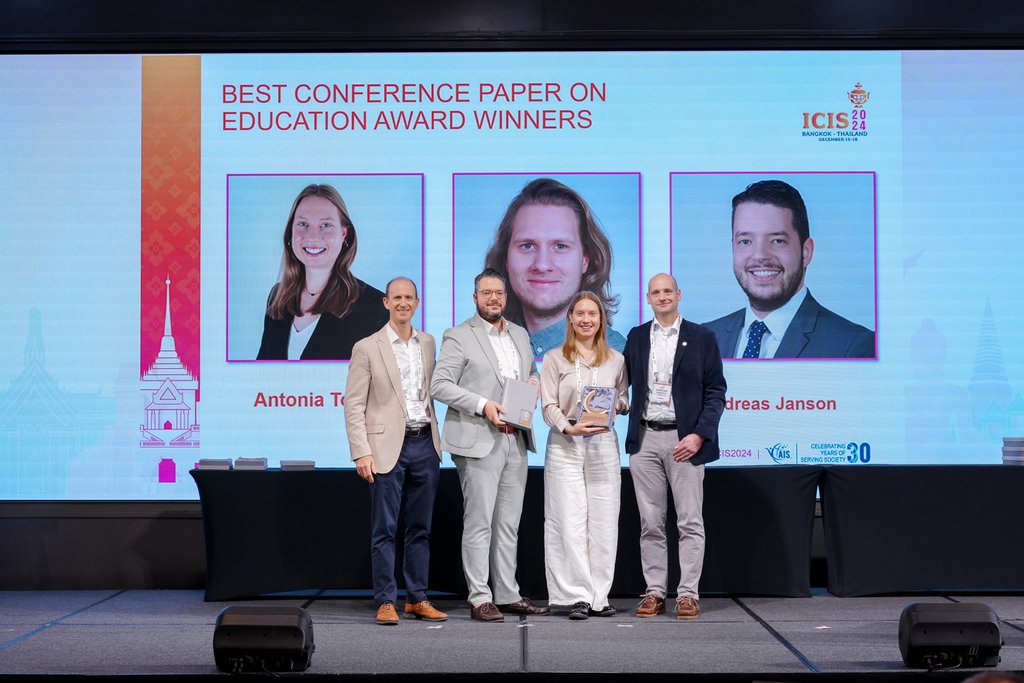Research - 03.10.2025 - 15:00
So-called “conversational agents” based on large language models (LLMs) are among the most common applications of generative artificial intelligence (AI): hardly anyone today doesn’t use ChatGPT, Claude, Gemini or another commercial product. The same applies in particular to schools of all kinds. However, if used incorrectly, such AI applications are of little use. In the worst case, they hallucinate and provide answers that do not correspond to reality. An exciting field of application is therefore “pedagogical conversational agents” (PCA), which serve as learning companions. Open AI recognised this potential early on. In 2022, they granted the creators of the “Khan Academy” learning platform access to ChatGPT so that they could build personal tutors for learners, as founder Sal Khan explained during his visit to HSG in 2023.
But how should PCAs be designed to provide learners with optimal support? An interdisciplinary team from the University of Kassel and HSG has investigated this question. “I am driven by the question of how we can actively shape learning with scalable and digital solutions, rather than just observing what tools such as ChatGPT do with students,” says Andreas Janson, a postdoctoral researcher at the Institute of Information Systems and Digital Business (IWI-HSG). “Educational technologies must not only function – they should be designed in such a way that they motivate, address individual needs, and have a real impact.” That is why he and his fellow researchers conducted a field study with 129 students to specifically examine and consciously design the interactions between the bot and the learners. A control system provided information in the traditional way, without any specific questions to ensure mutual understanding, while the experimental PCA regularly asked students to identify any ambiguities and actively seek clarification. Both systems used identical learning materials and tasks. The researchers were thus able to demonstrate that establishing common ground between learners and PCA is a key success factor. This is because those students who interacted with the PCA achieved better results in knowledge tests than the control group. “AI-based learning partners can help, but they do not automatically understand the needs of learners. Many overwhelm learners with complex interactions or underchallenge them by providing unreflective solutions. That's why AI learning companions should build a common understanding with learners and support the learning process with motivational elements,” says Andreas Janson. Although only university students took part in the study, he is convinced that the findings can also be applied to other levels of education: “A PCA can be designed to meet the needs and conditions of any learning group.”
Another study recently published in the journal Computers & Education, in which Andreas Janson and Prof. Jan Marco Leimeister were involved, examines how gamification elements such as digital awards, points, rankings, etc. affect learner motivation. The research team from the Universities of Kassel and Wuppertal and the Technical University of Braunschweig, together with researchers from HSG, attempted to determine which gamification elements have a motivating effect in AI-supported learning. To this end, the researchers designed several prototypes of a “gamified” PCA, which was evaluated in several studies. The researchers were able to identify four successful design principles (“GNPL Framework”) that measurably increase learning success. These are “goal setting and reflection”; “novice-expert relationship”, whereby novices (learners) and PCAs (experts) should communicate on an equal footing; “performance-related motivation” with individual feedback and incentives for achieving learning goals; and “telling a learning story”, i.e. the PCA combining tasks, challenges and situations into a continuous, meaningful narrative.

Based on his research, Andreas Janson has derived three principles for sustainable AI-supported learning: “Firstly, we must view learners, teachers and digital learning partners as a team and develop holistic learning processes for the co-creation of knowledge. Secondly, motivation is not a luxury, but a prerequisite for perseverance. Educational institutions should therefore experiment with playful approaches to ensure that learning opportunities are utilised. Thirdly, support services must become more dialogue-based – whether with humans or AI.”
The Swiss National Science Foundation (SNSF) has funded Andreas Janson's research with around CHF 100,000 as part of a Spark Grant. In addition, a paper he co-authored with researchers from the University of Kassel was awarded “Best Education Paper 2024” by the Association for Information Systems (AIS) at last year's International Conference on Information Systems (ICIS) (see cover image).
Weitere Beiträge aus der gleichen Kategorie
Das könnte Sie auch interessieren
Entdecken Sie unsere Themenschwerpunkte
